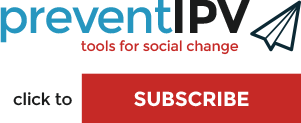It's On Us
The It's On Us campaign engages college students to prevent campus sexual assault. Through PSAs, on-campus awareness events, and the It's On Us action toolkit, this campaign is designed to spark critical conversations about sexual violence on campus and the role of bystanders.
The It's On Us campaign works with students to recognize that non-consensual sex is sexual assault, to identify situations in which sexual assault may occur, to intervene in those situations, and to create a campus environment in which sexual violence is unacceptable and survivors are supported. It provides students with opportunities to discuss gender-based violence and build skills.
It's On Us can complement existing campus programming that focuses on healthy relationships and upstander behavior. The website provides links to PSAs and a pledge that students can take to be active bystanders and create campus environments free from sexual violence. Campus preventionists and student organizers can download the It's On Us campaign toolkit for tips on messaging, organizing on campus, effective social media use, and more.

